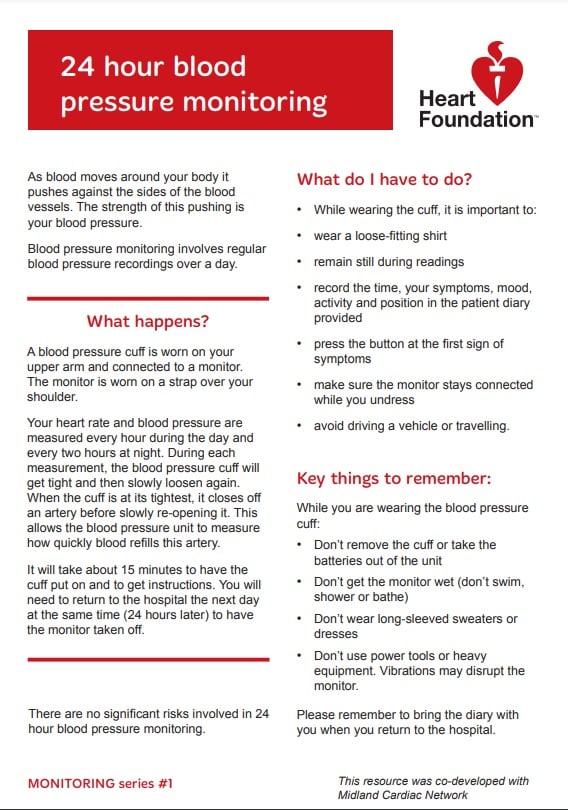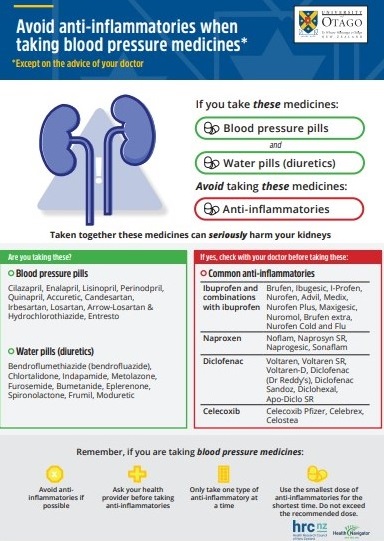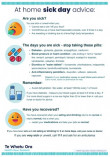If you're a frequent visitor to Healthify, why not share our site with a friend? Don't forget you can also browse Healthify without using your phone data.
Blood pressure medicines
Also called antihypertensives
Key points about blood pressure medicines
- If you are diagnosed with high blood pressure, your healthcare provider may advise you to take one or more medicines to keep it under control.
- By treating high blood pressure, you reduce your risk of heart disease, stroke, kidney failure and eye damage.
- Find out about blood pressure medicines and possible side effects.

- Take your medicine regularly. Get into a routine and take your pills at the same time every day, to help you remember to take them. Try using a pillbox marked with the days of the week and fill it at the beginning of each week to make it easier to remember.
- Don't let your supply run out. Get your prescription before you run out and make sure you have enough for weekends, public holidays and when you are away on holiday.
- If you forget to take a dose, take it as soon as you remember. However, if it is almost time for your next dose, skip the missed dose. Do not take 2 doses to make up for the dose you missed.
- Don't stop taking your blood pressure medicine suddenly. If you feel unwell or have any side effects, tell your healthcare provider.
- Check with your healthcare provider before starting any new medicines or supplements. Blood pressure medicines can interact with other medicines and herbal supplements.
- Be careful taking anti-inflammatories while you are on blood pressure medicines. This includes ibuprofen (Nurofen) and diclofenac (Voltaren).
| Avoid taking these medicines together |
| AVOID anti-inflammatories if you are taking ACE inhibitors AND diuretics, OR ARBs AND diuretics. Taking them together can damage your kidneys. Read more about anti-inflammatories and blood pressure medicines. |
Your healthcare provider will go through a number of steps with you to find the right blood pressure medicine for you.
The choice will depend on your:
- age
- ethnicity
- health conditions (such as kidney disease or angina)
- medical history, such as which blood pressure medicines you have tried in the past.
Since everyone is different, some medicines work better for others than they will for you. Often 2 or 3 medicines are needed and it may take time to find the right combination and dosage.
Below are the most common groups of medicines that can be used to lower blood pressure.
ACE inhibitors block a hormone in your blood that causes your blood vessels to tighten. In this way, they relax your blood vessels and lower your blood pressure. Read more about ACE inhibitors.
| Examples of ACE inhibitors | |
|
|
These also control hormones that affect your blood pressure. Examples include:
- candesartan
- losartan.
Read more about ARBs.
These medicines are often used to reduce blood pressure when other options are not suitable or not working well enough. Read more about beta blockers.
| Examples of beta blockers | |
|
|
These medicines block calcium from getting into your cells and in this way relax your blood vessels and your lower blood pressure. Read more about calcium channel blockers.
| Examples of calcium channel blockers | |
|
|
Diuretics are commonly called ‘water pills’. They remove unwanted fluid from your body, which helps lower your blood pressure. Examples include:
- furosemide
- bumetanide
- bendroflumethiazide
- chlortalidone
- indapamide.
Read more about diuretics.
Medicines used to treat high blood pressure can cause side effects, although not everyone gets them. It is important to let your healthcare provider know about any side effects you may have and to follow instructions carefully.
A common side effect of blood pressure-lowering medicines is feeling light-headed, dizzy or faint. This puts you at risk of falls or injuries, especially if you are an older adult. These side effects happen in 1 in 100 people and are quite common when you first start the medicine or move onto a higher dose. They usually go away with time, but tell your healthcare provider if they continue after several doses.
If you do feel dizzy or faint after taking your medicine, sit or lie down for a few moments until it gets better. You may find that taking your dose at night helps, but make sure you are not feeling dizzy when walking at night.
Read more about medicines and side effects and reporting a reaction you think might be a side effect.
Resources
24 hour blood pressure monitoring(external link) Heart Foundation, NZ
Avoiding anti-inflammatories when taking blood pressure medicines [PDF, 203 KB] University of Otago, NZ, 2021
Reference
- Hypertension and heart failure(external link) NZ Formulary
Brochures

Heart Foundation, NZ

University of Otago, NZ, 2021

At home sick day advice
Health New Zealand | Te Whatu Ora, 2023
Credits: Sandra Ponen, Pharmacist, Healthify He Puna Waiora. Healthify is brought to you by Health Navigator Charitable Trust.
Reviewed by: Maya Patel, Pharmacist, Auckland
Last reviewed:
Page last updated:





